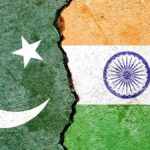Md Nazrul: Though the secular and Nehruvian principles characterized Indian society and psyche for decades, the rise and growth of extremist right-wing Hindutva are bent on painting it in fundamentalist and fascist colour. This had particularly become reality with the rise of Narendra Modi-led Bharatiya Janata Party (BJP) in 2014 to the echelons of power. Driven by exclusivist Hindutva ideology advocating a Hindu way of life, contemporary India reflects saffronisation of cognition, social fabric, public spaces and the educational system. The fascist, fundamentalist and obscurantist forces spearheaded by the BJP-RSS nexus are dragging Indian society back into the dark ages. The state-led encroachment of Hindutva has been suffocating the lives of minorities. This is particularly true in the ongoing raging rhetoric being institutionalized against Muslims. Growing hatred against Muslims, ossifying Islamophobic tendencies, fuss over the Taj Mahal as a Hindu place, calls to renaming Humayun and Akbar roads and banning the hijab for schoolgirls are few of the manifestations of the growing encroachment of extremist forces in Indian society. The Krishna Janmabhoomi-Shahi Idgah row is yet another gruesome instance of BJP-RSS aggression. The ongoing litigation of Shahi Idgah Mosque in the Mathura region of Uttar Pradesh for removal reflects the deepening clutches of fascist Hindutva ideology in the Indian society. On 26 May 2022, the Mathura court heard a case seeking abolition of the mosque.
The original plea was filed in a court of Senior Division Civil Judge on 25th September 2020 by Lucknow-based Ranjana Agnihotri and six Hindu devotees calling themselves the “next friends of Bhagwan Sri Krishna Virajman”. The petition was, however, rejected on the grounds of being non-admissible by the Judge. In the plea, the plaintiffs had contended that since the Shahi Idgah Mosque was erected on the premises of 13.37 acres of land belonging to Krishna’s Janambhoomi or birthplace of Lord Krishna, the mosque in question be removed and the land be returned to Sri Krishna Janambhoomi Trust. However, the complaint faced rejection on 30th September – the same year as non-maintainable because none of the petitioners were from Mathura. After the rejection of the plea, the petitioners filed a revision of the order in the court of the district judge. Following the video graphic survey order by a court inside the Gyanvapi mosque complex in Varanasi, the Mathura District Court accepted the plea calling for the demolition of Shahi Idgah Mosque, which shares the area with the Katra Keshav Dev Temple. The respondents of the petition included Shahi Idgah Mosque, Sunni Central Waqf Board, Shri Krishna Janambhhomi Seva Sansthan and Shri Krishna Janambhhomi Trust. Restoring the suits that seek the demolition of Shahi Idgah Mosque has instituted a judicial proceeding against the mosque. The temple in Uttar Pradesh’s Mathura town is said to have been constructed around the jail where Lord Krishna was born. Historical records suggest that the Shahi Idgah was built in 1669. In 1935, the ownership of the land was upheld by the King of Varanasi. A decade later, the land was bought by Jugal Kishore Birla who laid the foundation of the Sri Krishanbhhomi trust to construct a Krishna temple on the land. In 1958, Shri Krishna Janamsthan Seva Sangh was established and managed the affairs of the temple trust. In 1965, the Shahi Idgah Mosque management and the temple trust inked an agreement, according to which the trust had no right to claim the masjid land. However, a civil suit in the 2020 Mathura court challenged the agreement and called it a deceptive deal between the Idgah Committee and Seva Sangh. The fate and future of religious places in India is regulated under the Places of Worship Act 1991. In simple terms, under the Act, no person, government or court can alter the status quo and character of a mosque, church or any other religious place from what they were on 15th August 1947. However, even laws are put on trial in India. Instead of disregarding such claims in the light of the Places of Worship Act 1991, Indian courts are favouring Hindutva political narratives by allowing proceedings of the petitions against mosques.
From Babri to Gyanvapi, India’s courts strengthen Hindutva’s ideology in Muslim places of worship. The demolition of Babri Masjid in Ayodhya by Hindu nationalists in 1992 resulted from a chain of reactions following a District court order of Uttar Pradesh in 1986. However, unlike the Babri Mosque’s fiasco, a similar satanic move for Idgah Mosque won’t be that much easy. The Muslim community has vowed tough resistance and agitation. OMA Salam, the Chairman of Popular Front of India (PFI) said that “The PFI would be at the forefront in the fight against any move to encroach new mosques and make them temples. The PFI is ready to make any sacrifice or face any loss for that,’’ said Salam, addressing a gathering in Alappuzha as part of PFI’s “Save the Republic” campaign. Hajji Mehboob said in Ayodhya “We will not succumb to the threats on Gyanvapi and Idgah Mosque…. the Muslims will protest….we will launch a nationwide agitation if the saffron outfits try to take them by force”.
RSS and Hindutva have been continuously pressurizing the government on amending the Act to convert India into a Hindutva state altogether. In the backdrop of Hindutva’s strengthened clutches and RSS-BJP’s government and Indian Judiciary’s disregard for the laws of the land, concerns are being voiced about the fate of the Idgah Mosque. It is being feared that it, too, is going to meet the same fate as that of the Babri Mosque. This could cause a bloodletting and massacre of the Indian Muslims. It’s time for the international community, global civil society and human rights watchdog to intervene before Shahi Idgah Mosque becomes another Babri Masjid






